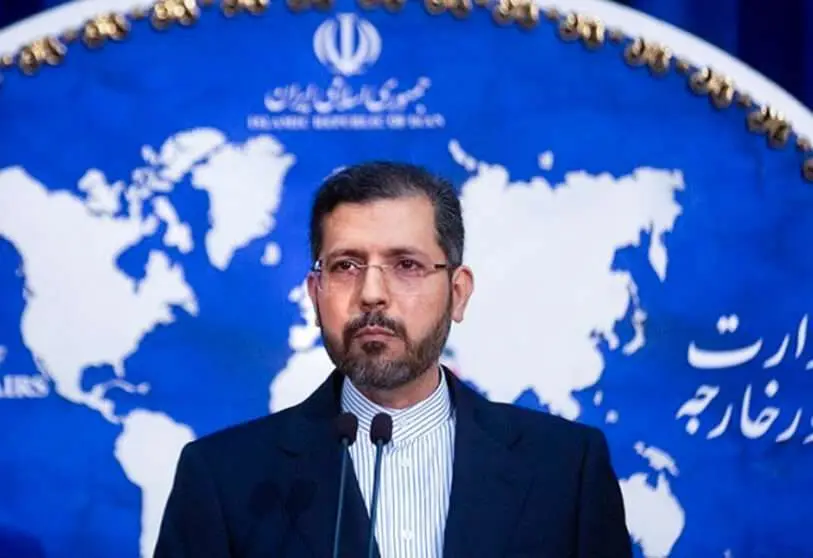A nuclear deal with Iran is getting further away from being reached

The countries of the nuclear agreement with Iran have been negotiating in Vienna, under the leadership of the European Union since the beginning of April, to find a mechanism that would allow the United States and the Islamic Republic to return to the pact.
The European bloc plays a key role as mediator, with the aim of preserving an agreement that it considers fundamental for global stability and security. The new US administration has repeatedly stated that it wants to bring the United States back into the nuclear deal with Iran and thus restore tension in relations with a country that is key to security and peace in the Middle East. Sanctions were reinstated by Donald Trump after he pulled the US out of the historic deal signed in 2015, and since then Iran has threatened to renege on its commitments despite European mediation.

Iran expressed doubts that a deal will be reached in the current round of negotiations in Vienna to reinstate the 2015 nuclear pact. Foreign ministry spokesman Said Khatibzadeh said that "it is unlikely that this round of negotiations will be the last" because the US "must make its decisions". "What is going on in Vienna has not reached any impasse and there is nothing impossible. The talks are continuing on some technical, political, legal and executive issues, and there are two or three key issues (to be resolved)," according to Efe. Jatibzadeh also stressed that "the US must provide guarantees that the conditions of the Trump era will not be repeated", in reference to the decision to re-impose sanctions on Iran.
Iran is in breach of much of the agreement, particularly with regard to the production and purity of enriched uranium, a material that has dual civilian and military uses. A recent report by the IAEA, the UN nuclear agency, confirms that Iran now has some 3,200 kilograms of enriched uranium instead of the 300 allowed under the agreement. Moreover, Iran has already succeeded in enriching uranium to a purity of 60%, well above the permitted level (3.67%) and at the same time close to the level needed to make nuclear bombs.

Meanwhile, Iranian President Hasan Rohani reiterated that Iran will return to its obligations if the US and the member states of the nuclear deal do the same. "Our nuclear energy is not for developing nuclear weapons. The US and Europe should know this and understand that Iran's nuclear activity is completely peaceful," Rohani said, according to the Iranian presidential website.
The director general of the International Atomic Energy Agency (IAEA), Rafael Grossi, said in an interview with the US media Axios that "Iran has an ambitious and sophisticated nuclear programme under development". For the head of the organisation, reactivating the nuclear agreement with Iran is "essential" because otherwise "we are flying blind"

However, the latest UN nuclear reports have again accused Iran of a lack of transparency after finding traces of enriched uranium in several areas that would not have been reported as part of its nuclear programme. US Secretary of State Antony Blinken says these actions could lead to Iran having a nuclear bomb "in a matter of weeks" if it does not stop supplying fissile uranium and continues to accelerate its nuclear programme.
The data collected by the IAEA over the past few months will not be accessible until 24 June, when the agreed plan for monitoring Iran's nuclear activities expires. The IAEA's objective was to prevent the Islamic Republic from developing nuclear weapons, which is why the agreement curtailed its uranium enrichment programme.
The 2015 nuclear deal obliges Iran to receive visits by IAEA inspectors and give it broad access to information on its nuclear activities, with full ability to inspect any anomalies on condition that sanctions on the Iranian economy were lifted - sanctions that are taking their toll.

The sanctions regime imposed by the international community over the past two decades has weakened Iran. Imports and exports fell sharply after oil sanctions were reimposed. Iran's economy is estimated to have contracted by 4.99% in 2020, declining without recovery since 2017. The Iranian currency has fallen steadily since 2018, its unofficial market value is more than 250,000 rials to the dollar, which is far from the Central Bank's official rate of 24,000 rials to the dollar, making imports more expensive for locals and inflation high due to the weakening currency, at a time of political instability with presidential elections on 18 June promising to be decisive for the future of the nuclear deal.
The sixth and final round of negotiations took place on 12 June in the Austrian capital. Divided into three groups, two of which are negotiating the lifting of sanctions imposed by Washington and Tehran, while the third is trying to establish the basis of the agreement. The parties have so far failed to find common ground on which to resume the Joint Comprehensive Plan of Action (JCPOA). Spokespersons for France, Germany and Britain, which make up the E3 group, stressed the importance of Iran in allowing the IAEA to maintain its monitoring and verification work, and urged the two main players to "find a way to move forward".








